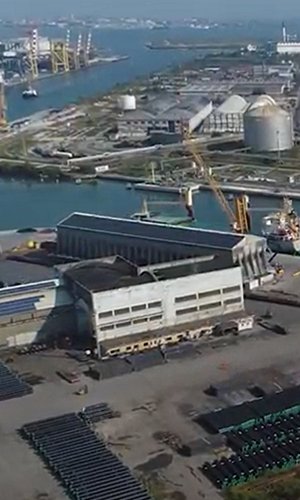The Ferrara plant began operations in 1941, with the establishment of a synthetic rubber production facility by the Società Anonima Italiana Gomma Sintetica. In 1950, the plant was acquired by Montecatini (merged into Edison in 1966), which built there the first Italian petrochemical hub, developing a cracking unit and launching a cycle of derivatives such as polyethylene, polystyrene, ethylene oxide, polypropylene and elastomers. In the 1980s, many activities were stopped, while others were transferred: the polyethylene business branch passed from Montedison to Anic (1982), the polypropylene supply chain to Himont - joint venture of Montedison and Hercules (1983) - while the production of ammonia, urea and fertilisers to the Norsk Hydro group. In 1991, following the failed Enimont operation, the hub passes to Enichem (since 2003 Syndial and today Eni Rewind).
Our Channels
Your business, our energy
Produtcs and solutions for business and customers Italy and abroad
Go to myeni
Voice search

Ferrara
Works on site: remediation of surface matrices and groundwater, permanent safety measures of the former Monteco landfill, post-operam management of the former Torce Area.
2002
Start of the remediation process
Montedison/Anic
Origin of areas
116 ha
Surface areas inside and outside the petrochemical site owned by Eni Rewind
€ 51 million
Environmental costs at 2023
OPEX ~ € 500 k
Annual management costs
~ 98,000 m³
Water treated in 2023
~ 88,000 m³
Water recovered in 2023
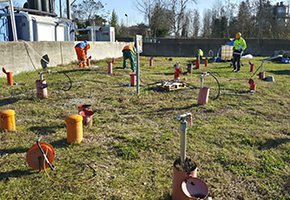
Test field for e-limina® method

Intervention for the implementation of Permanent safety measures of the former Monteco landfill
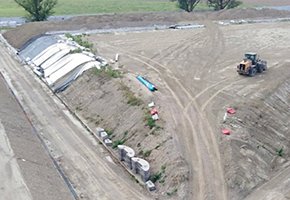
Intervention for the implementation of Permanent safety measures of the former Monteco landfill
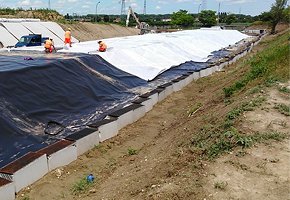
Intervention for the implementation of Permanent safety measures of the former Monteco landfill

Intervention for the implementation of Permanent safety measures of the former Monteco landfill
Our activities in Ferrara
In Ferrara, Eni Rewind is engaged in various activities that comprise the the surface matrices, of the confined aquifer (the latter through interventions by the IFM consortium) and of the PZPEC23 area, in addition to the implementation of permanent safety measures at the former Monteco landfill and the post-operam management of the former Torce Area. The company also guarantees hydraulic protection using a groundwater extraction system. On the decommissioning front, the demolition of the CTQ buildings, CTE1 and DEMI1 plants and the hydrogen/piezometric towers has already been completed, whereas the demolition of former Agriculture buildings, former ABS facilities, the Tank Park and minor properties has been scheduled. The Ferrara site is also a key player in the testing and validation of increasingly innovative and sustainable technological solutions, such as the e-limina methodology that monitors the reduction in groundwater contamination or the passive sampling technique using low density polyethylene sheets (LDPE) that quantifies the availability of organic contaminants in sediments and soils or volatile organic compounds in soil gases in the most sustainable and representative way. As part of the European MySOIL project, where Eni Rewind is one of the partners involved, a trial test was conducted to assess the applicability of mycoremediation, a technology based on the use of micro-organisms and fungi’s biodegradative action to remove hydrocarbons from contaminated soils.
Read about our other remediation projects
We have carried out environmental remediation and regeneration activities in former industrial and brownfield sites.
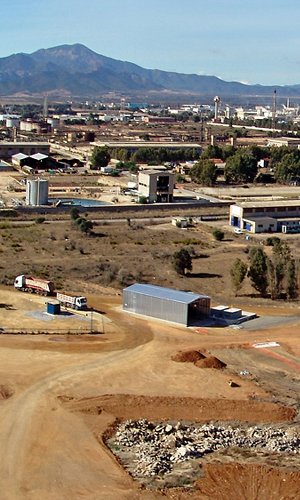
Assemini
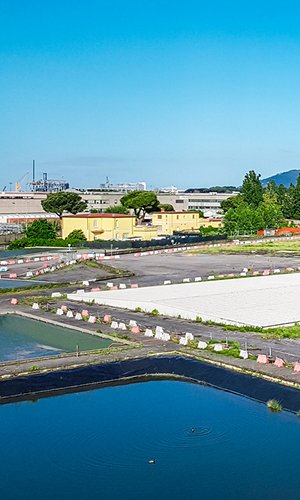
Avenza

Brindisi
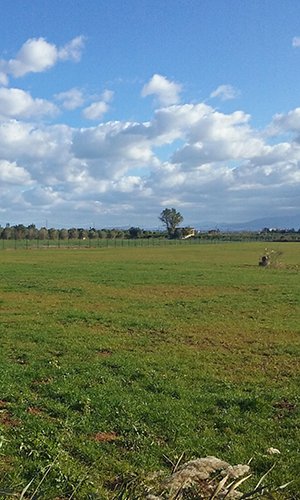
Cassano-Cerchiara
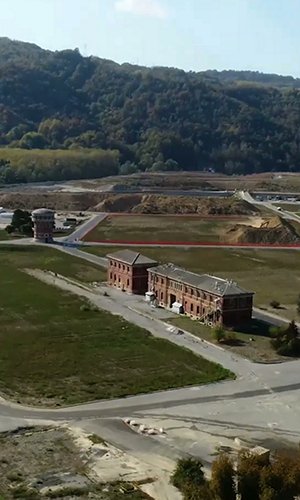
Cengio and Saliceto
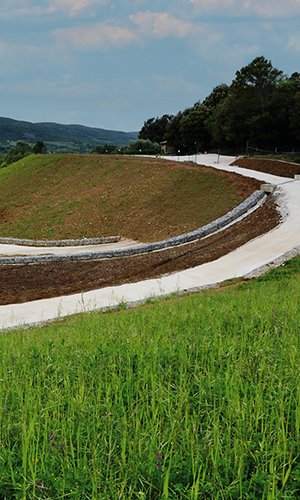
Colline Metallifere

Crotone
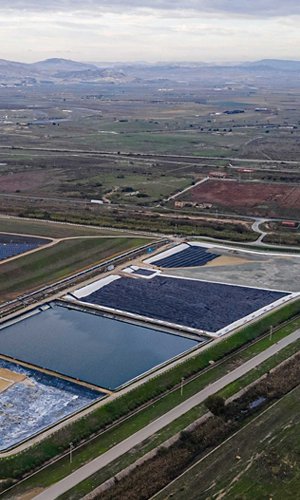
Gela
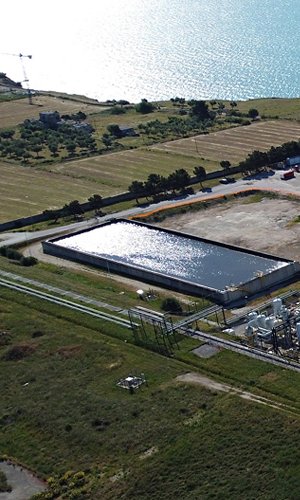
Manfredonia
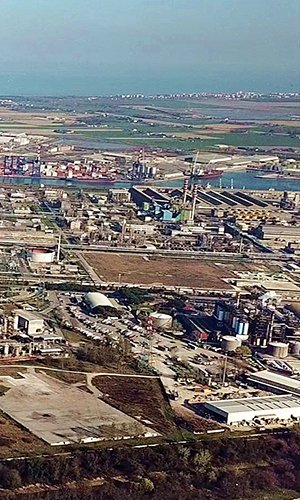
Ravenna
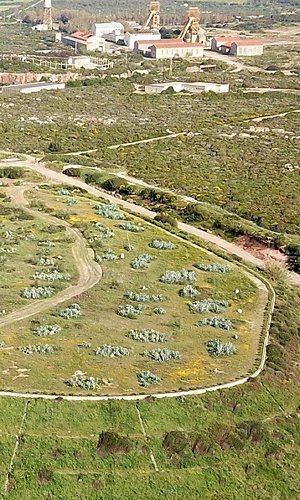
Sa Canna
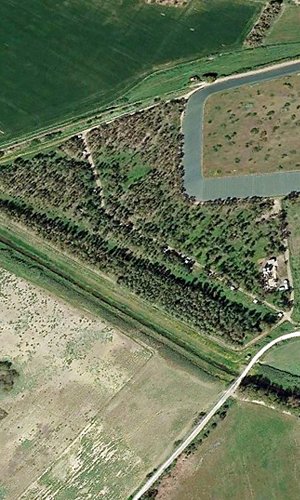
Sa Piramide
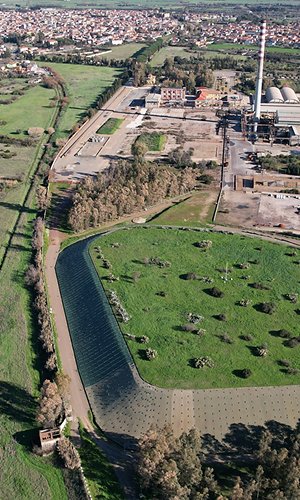
San Gavino Monreale
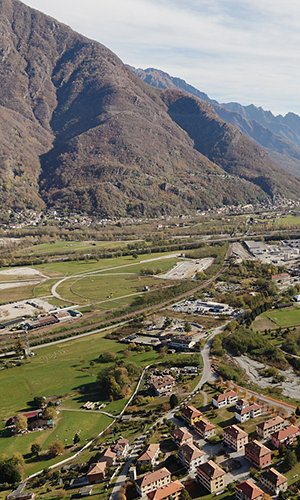
Pieve Vergonte
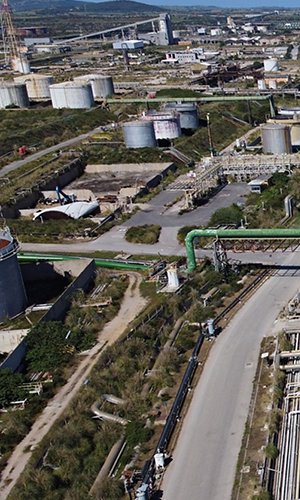
Porto Torres
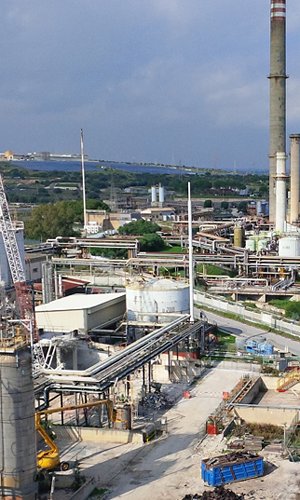
Priolo
